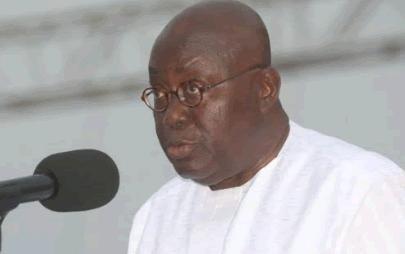Deepen collaborative efforts for Ghana Beyond Aid – Dr Arthur

The Head of Local Government Service, Dr Nana Ato Arthur has stressed that for the “Ghana Beyond Aid” Agenda to become a national reality, the processes must start at the district level.
To achieve this, there is the need for a strong inter-service collaboration and cooperation to engender holistic planning for effective and efficient service delivery at all institutional levels to check financial and material resource leakages in the system.
Dr Nana Arthur was speaking at a day’s forum on “Inter Service and Sectoral Collaboration and Co-operation System (ISCCS)” in Cape Coast on Thursday for Heads of Department, Coordinating Directors of the Metropolitan, Municipal and Districts (MMDAs), Ministries, Departments and Agencies (MDAs) and Public Corporations.
He explained that the country’s decentralization policy was instituted purposely for effective delivery of services to the citizenry, however, some issues of overlaps, duplication as well as conflicts in functions, planning and implementation of projects and programmes occur among some institutions both at the Regional and district levels.
This, to him was hampering development and growth and therefore, the ISCCS, which is incorporated in ACT 2003 (656) and amended into Local Service Act, 2016 (ACT 936), Section 63, 4c, was to ensure the harmonization of local government programmes among others to avoid duplication.
“The resolution of such issues to ensure effective service delivery requires an effective inter-service and sectoral collaboration and cooperation mechanism,” he added.
Dr Nana Arthur said such a mechanism among institutions and services in the decentralization programme would aid unity of efforts, foster common understanding on development issues, provide common platform for work and enhance the achievement of common objectives for integrated service delivery.
It was for this reason that his office was sensitizing all stakeholders for the implementation of the ISCCS to ensure Sectoral collaboration and cooperation for enhanced holistic planning, reduced institutional conflicts, ensure judicial use of resources and improve participation, transparency and accountability in service delivery.
This will also ensure improved local economy, poverty reduction, employment generation, enhanced social cohesion, gender mainstreaming and environmental conditions for the Ghana Beyond Aid Agenda to be realised.
Dr Esther Offei Aboagye, a Consultant, bemoaned the “perception of competition” among some leadership of the public sector, which was breeding unnecessary confusion and called for a “considerable scope of collaboration and networking for enhanced performance”.
She indicated that inter-institutional engagement and communication on related issues must be facilitated, whilst responses to questions that may arise during public discourses be harmonised to avoid officers giving out conflicting statements on matters of public interest.
Furthermore team-work must be strengthened at the Regional and District levels, whereby it will be possible to share resources and services such as conference rooms, vehicles and other facilities to save cost.
Dr Offei Aboagye urged all stakeholders to work in tandem to ensure that the implementation of the ISCCS become a success story.
Mr Kingsley Adei Boahen, Chief Director of the Central Regional Coordinating Council, called on policy makers as well as all stakeholders to synchronise their activities for a better performance.
Source: GNA
